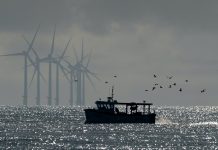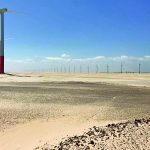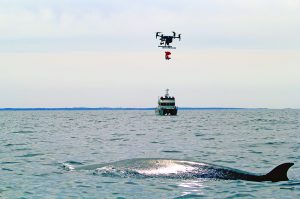Kinewell Energy recently launched a licensed version of its inter-array layout optimization software KLOC.
The KLOC software was initially released as a consultancy tool for Kinewell Energy in 2015 after two years of research and development. Using KLOC, Kinewell Energy has since delivered numerous high profile projects adding significant value to clients. In a case study of the Gwynt-y-mor offshore windfarm, the software was able to realize savings of £2.2 million, or 3 percent of the installed cable cost. The KLOC software was highly commended at the IET Innovation Awards in 2016.
“We have developed our world leading inter-array cable layout optimization solution into a licensed product following requests from clients,” said Kinewell Energy Managing Director Andrew Jenkins. “This enables clients to harness the power of the KLOC software in-house. We are thankful to the recently launched £30 million National Innovation Centre for Data (NICD) hosted at Newcastle University for their support during this development.”

The KLOC software rapidly designs an economically optimized inter-array cable layout design for an offshore wind farm based on the locational and cost data it is presented with. The software appropriately prioritizes the optimization of capital cost against operational costs such as electrical distribution losses and unavailability losses due to cable faults.
In addition to the value generated through a single run of the KLOC optimization engine, further value can be achieved by using the multi-run functionality that is only possible due to the software’s incredible speed. A multi-run can determine cost sensitives using automated incremental changes to input data on each run. For example, KLOC can model numerous alternative substation locations around the development area, developing an optimized inter-array layout at each location. In this way, the locations of the substations themselves can be optimized.
Similarly, any input data can be varied and thus KLOC can determine the cost sensitivities of using different turbine types, different sets of cable types, operating voltage, the cost of capital, and different installation methodologies in each area of the development site, amongst others.
“Prior to the availability of the KLOC software, such optimized inter-array cost sensitivity analysis was not possible due to the prohibitive time and cost of undertaking such a calculation,” Andrews said.
Although the KLOC software has been developed around offshore wind, it has numerous other applications. It can be used to optimize the inter-array layout of connecting any number of nodes with a central location.
This means that it is immediately transferable to large onshore wind, large solar, wave, and tidal energy projects. Additionally, it could also be used for array cables that supply (rather than receive) energy to those nodes, such as the electrical pump demand in oil and gas projects.
Furthermore, it could be used to optimize the pipelines that link those oil and gas wells to a central processing facility of the product.
More info www.kinewell.co.uk







































